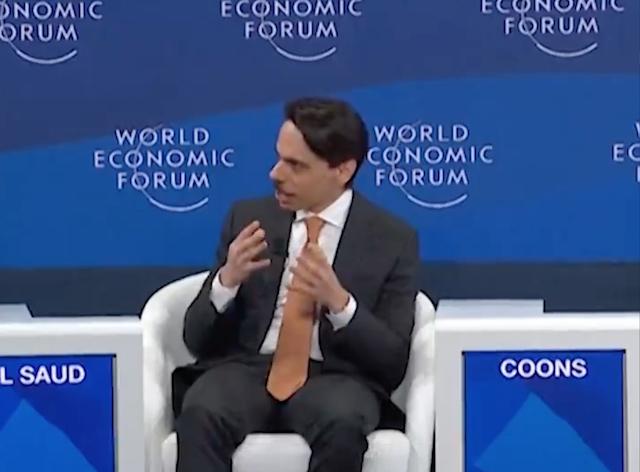Saudi Arabia's principal diplomat, Prince Faisal bin Farhan, recently articulated a firm stance on the kingdom's relationship with Israel, emphasizing that normalization of relations is contingent upon a viable roadmap towards Palestinian statehood. This position, made clear in an interview with CNN, underscores the complexities of Middle Eastern diplomacy and the intricate balance of regional powers.
Amidst escalating tensions and ongoing conflict, Israeli Prime Minister Benjamin Netanyahu, facing internal pressures highlighted by protests within a parliamentary committee, firmly opposes the establishment of a Palestinian state. Netanyahu's strategy includes an ongoing military presence over Gaza, a point of significant contention in Israeli domestic politics and its international relations, particularly with the United States, Israel's foremost ally.
CNN: “Are you saying unequivocally that if there is not a credible and irreversible path to a Palestinian state, there will not be normalization of relations between Saudi Arabia and Israel?”
— Aviva Klompas (@AvivaKlompas) January 22, 2024
Prince Faisal bin Farhan, Saudi Arabia’s foreign minister: “That’s the only way we’re…
The persistent conflict in Gaza, marked by severe devastation and human suffering, poses a formidable barrier to any postwar reconstruction efforts. Home to over 2 million Palestinians, Gaza's future remains a critical issue, not just for Israel and the Palestinians, but for the international community at large.
Before the outbreak of the current conflict, initiated by a Hamas attack on October 7, there were significant diplomatic efforts underway. The United States sought to broker an unprecedented agreement involving Saudi Arabia's normalization with Israel. This deal, also entailing U.S. security assurances and support for Saudi Arabia's civilian nuclear program, was dependent on progress in resolving the Israeli-Palestinian conflict. Netanyahu had previously indicated that such a landmark agreement was within reach.
In his conversation with Fareed Zakaria on CNN, Prince Faisal expressed Saudi Arabia's conditional approach to normalizing relations with Israel and its potential involvement in Gaza's reconstruction. The Prince's statements reflect a broader regional perspective, seeking a resolution that transcends mere return to pre-conflict conditions and addresses the root causes of the recurring cycles of violence.
Saudi Arabia and Jordan are helping Israel by breaking the Houthi siege on Israeli ships in the Red Sea.
— Nakba (@VictorNakba) January 21, 2024
Instead of circling Africa, Israeli shipping companies unload their cargo at the ports of Bahrain and Dubai, then transport by Saudi and Jordanian trucks. pic.twitter.com/tlvFgHVsdg
The Israeli-Palestinian conflict, with its deep historical roots and complex geopolitical implications, remains a critical issue. The Palestinians aspire to establish a state encompassing Gaza, the West Bank, and East Jerusalem – territories seized by Israel in the 1967 Mideast war. Israel, viewing Jerusalem as its undivided capital and the West Bank as a significant part of its historical and religious heritage, has established numerous settlements in these areas, further complicating the path to peace. The impasse in peace talks, stagnant for nearly 15 years, underscores the challenges inherent in reaching a sustainable resolution.
The European Union, discussing the ongoing war, has echoed the necessity of a Palestinian state for achieving lasting peace. The EU's position aligns with widespread concerns regarding Netanyahu's rejection of Palestinian statehood.
The current conflict between Israel and Hamas has resulted in tragic loss of life and extensive humanitarian crises. The Health Ministry in Hamas-ruled Gaza reports staggering casualties, with a significant proportion of women and children among the deceased. The Israeli military attributes the high civilian toll to Hamas's tactics, including the use of densely populated areas for military operations.
As the war exacerbates regional tensions, impacting neighboring countries and drawing in Iran-backed groups, the situation remains precarious. Netanyahu, despite pledging to continue military operations for a "complete victory" and the safe return of Israeli hostages, faces increasing domestic and international pressure. The situation is further complicated by Hamas's demands and Netanyahu's coalition dynamics, which include far-right parties advocating for more aggressive military strategies and controversial political measures.
“Palestinians sold their land to the Arabs, and the next day they saw Israeli settlers turn up on that land with the title deed.”
— Januar Haikal (@Januarhaikal) January 22, 2024
Please watch this in full. They also said that the Saudis had already done a deal to give the al-Aqsa land to Israel.
I despise a traitor. pic.twitter.com/TM7TMGbp8w
This evolving situation in the Middle East, with Saudi Arabia's diplomatic stance as a new variable, highlights the intricate interplay of regional politics, international diplomacy, and the enduring quest for a resolution to the Israeli-Palestinian conflict.


